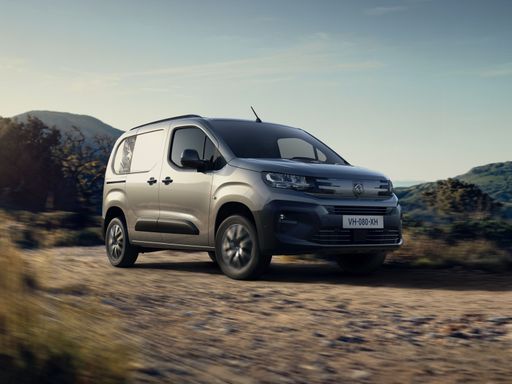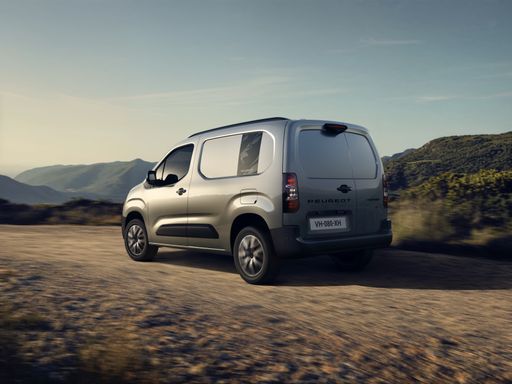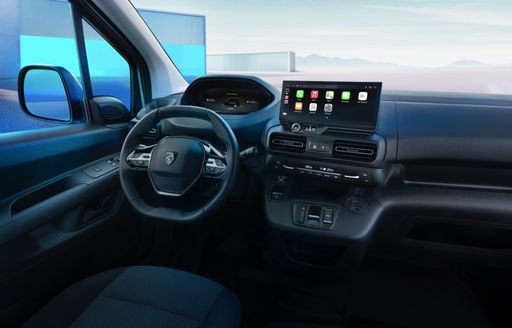Peugeot Partner vs Toyota Proace Transporter - Differences and prices compared
Compare performance (136 HP vs 150 HP), boot space and price (22400 £ vs 31600 £ ) at a glance. Find out which car is the better choice for you – Peugeot Partner or Toyota Proace Transporter?
Costs and Efficiency:
Price and efficiency are often the first things buyers look at. Here it becomes clear which model has the long-term edge – whether at the pump, the plug, or in purchase price.
Peugeot Partner has a clearly advantage in terms of price – it starts at 22400 £ , while the Toyota Proace Transporter costs 31600 £ . That’s a price difference of around 9246 £.
Fuel consumption also shows a difference: Peugeot Partner manages with 5.20 L and is therefore evident more efficient than the Toyota Proace Transporter with 6.40 L. The difference is about 1.20 L per 100 km.
In terms of energy consumption, the advantage goes to the Peugeot Partner: with 17.40 kWh per 100 km, it’s noticeable more efficient than the Toyota Proace Transporter with 23.80 kWh. That’s a difference of about 6.40 kWh.
As for electric range, the Peugeot Partner performs barely noticeable better – achieving up to 354 km, about 5 km more than the Toyota Proace Transporter.
Engine and Performance:
Power, torque and acceleration are the classic benchmarks for car enthusiasts – and here, some clear differences start to show.
When it comes to engine power, the Toyota Proace Transporter has a slight edge – offering 150 HP compared to 136 HP. That’s roughly 14 HP more horsepower.
In acceleration from 0 to 100 km/h, the Peugeot Partner is slight quicker – completing the sprint in 11.20 s, while the Toyota Proace Transporter takes 12.10 s. That’s about 0.90 s faster.
In terms of top speed, the Peugeot Partner performs hardly perceptible better – reaching 183 km/h, while the Toyota Proace Transporter tops out at 170 km/h. The difference is around 13 km/h.
There’s also a difference in torque: Toyota Proace Transporter pulls somewhat stronger with 370 Nm compared to 300 Nm. That’s about 70 Nm difference.
Space and Everyday Use:
Cabin size, boot volume and payload all play a role in everyday practicality. Here, comfort and flexibility make the difference.
Seats: Toyota Proace Transporter offers somewhat more seating capacity – 6 vs 5.
In curb weight, Peugeot Partner is clearly perceptible lighter – 1329 kg compared to 1656 kg. The difference is around 327 kg.
In maximum load capacity, the Toyota Proace Transporter performs noticeable better – up to 6600 L, which is about 2600 L more than the Peugeot Partner.
When it comes to payload, Toyota Proace Transporter noticeable takes the win – 1323 kg compared to 991 kg. That’s a difference of about 332 kg.
Who wins the race in the data check?
The Toyota Proace Transporter holds a very small edge in the objective data comparison.
This result only shows which model scores more points on paper – not which of the two cars feels right for you.
Costs and Consumption
View detailed analysis
Engine and Performance
View detailed analysis
Dimensions and Body
View detailed analysis

Toyota Proace Transporter
Peugeot Partner
The Peugeot Partner is a no-nonsense workhorse that doubles as a surprisingly comfy family mover, combining clever storage solutions with an easy-to-live-in cabin. It won’t win any beauty contests, but for small businesses and active families it’s practical, economical and utterly reliable when the day gets busy.
details


Toyota Proace Transporter
The Toyota Proace Transporter is a no-nonsense work van that pairs Toyota’s dependable reputation with smart practicality, so you can load, drive and finish the job without unnecessary drama. It won’t win design awards, but with a comfortable cab, sensible feature set and a focus on getting things done, it quietly keeps fleets and small businesses smiling.
detailsCosts and Consumption |
|
|---|---|
|
Price
22400 - 33800 £
|
Price
31600 - 51000 £
|
|
Consumption L/100km
5.2 - 6.3 L
|
Consumption L/100km
6.4 - 6.7 L
|
|
Consumption kWh/100km
17.40 kWh
|
Consumption kWh/100km
23.8 - 23.9 kWh
|
|
Electric Range
354 km
|
Electric Range
221 - 349 km
|
|
Battery Capacity
-
|
Battery Capacity
-
|
|
co2
0 - 143 g/km
|
co2
0 - 177 g/km
|
|
Fuel tank capacity
53 - 61 L
|
Fuel tank capacity
69 L
|
Dimensions and Body |
|
|---|---|
|
Body Type
Cargo Van
|
Body Type
Cargo Van
|
|
Seats
2 - 5
|
Seats
3 - 6
|
|
Doors
4 - 5
|
Doors
4 - 5
|
|
Curb weight
1329 - 1813 kg
|
Curb weight
1656 - 2100 kg
|
|
Trunk capacity
1800 L
|
Trunk capacity
-
|
|
Length
4403 - 4753 mm
|
Length
4980 - 5330 mm
|
|
Width
1848 mm
|
Width
1920 mm
|
|
Height
1796 - 1812 mm
|
Height
1895 - 1935 mm
|
|
Max trunk capacity
3300 - 4000 L
|
Max trunk capacity
3200 - 6600 L
|
|
Payload
611 - 991 kg
|
Payload
955 - 1323 kg
|
Engine and Performance |
|
|---|---|
|
Engine Type
Electric, Diesel, Petrol
|
Engine Type
Electric, Diesel
|
|
Transmission
Automatic, Manuel
|
Transmission
Automatic, Manuel
|
|
Transmission Detail
Reduction Gearbox, Manual Gearbox, Automatic Gearbox
|
Transmission Detail
Reduction Gearbox, Manual Gearbox, Automatic Gearbox
|
|
Drive Type
Front-Wheel Drive
|
Drive Type
Front-Wheel Drive
|
|
Power HP
102 - 136 HP
|
Power HP
120 - 150 HP
|
|
Acceleration 0-100km/h
11.20 s
|
Acceleration 0-100km/h
12.1 - 13.3 s
|
|
Max Speed
135 - 183 km/h
|
Max Speed
130 - 170 km/h
|
|
Torque
205 - 300 Nm
|
Torque
260 - 370 Nm
|
|
Number of Cylinders
3 - 4
|
Number of Cylinders
4
|
|
Power kW
75 - 100 kW
|
Power kW
88 - 110 kW
|
|
Engine capacity
1199 - 1499 cm3
|
Engine capacity
1499 - 2184 cm3
|
General |
|
|---|---|
|
Model Year
2024 - 2025
|
Model Year
2024 - 2025
|
|
CO2 Efficiency Class
A, E
|
CO2 Efficiency Class
A
|
|
Brand
Peugeot
|
Brand
Toyota
|
Is the Peugeot Partner offered with different drivetrains?
Available configurations include Front-Wheel Drive.
